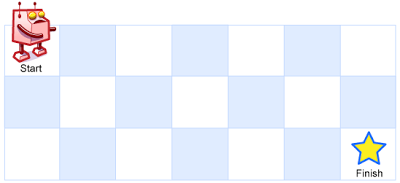LeetCode-in-All
62. Unique Paths
Medium
There is a robot on an m x n grid. The robot is initially located at the top-left corner (i.e., grid[0][0]). The robot tries to move to the bottom-right corner (i.e., grid[m - 1][n - 1]). The robot can only move either down or right at any point in time.
Given the two integers m and n, return the number of possible unique paths that the robot can take to reach the bottom-right corner.
The test cases are generated so that the answer will be less than or equal to 2 * 109.
Example 1:

Input: m = 3, n = 7
Output: 28
Example 2:
Input: m = 3, n = 2
Output: 3
Explanation: From the top-left corner, there are a total of 3 ways to reach the bottom-right corner:
-
Right -> Down -> Down
-
Down -> Down -> Right
-
Down -> Right -> Down
Constraints:
1 <= m, n <= 100
Solution
impl Solution {
pub fn unique_paths(m: i32, n: i32) -> i32 {
let m = m as usize;
let n = n as usize;
let mut dp = vec![vec![0; n]; m];
// Initialize the first row and first column
for i in 0..m {
dp[i][0] = 1;
}
for j in 0..n {
dp[0][j] = 1;
}
// Fill the DP table
for i in 1..m {
for j in 1..n {
dp[i][j] = dp[i - 1][j] + dp[i][j - 1];
}
}
dp[m - 1][n - 1]
}
}

